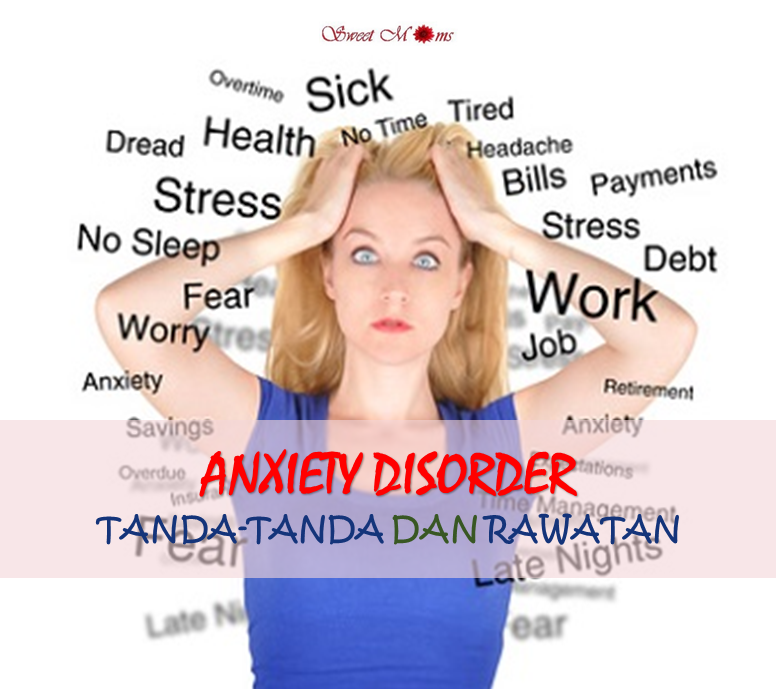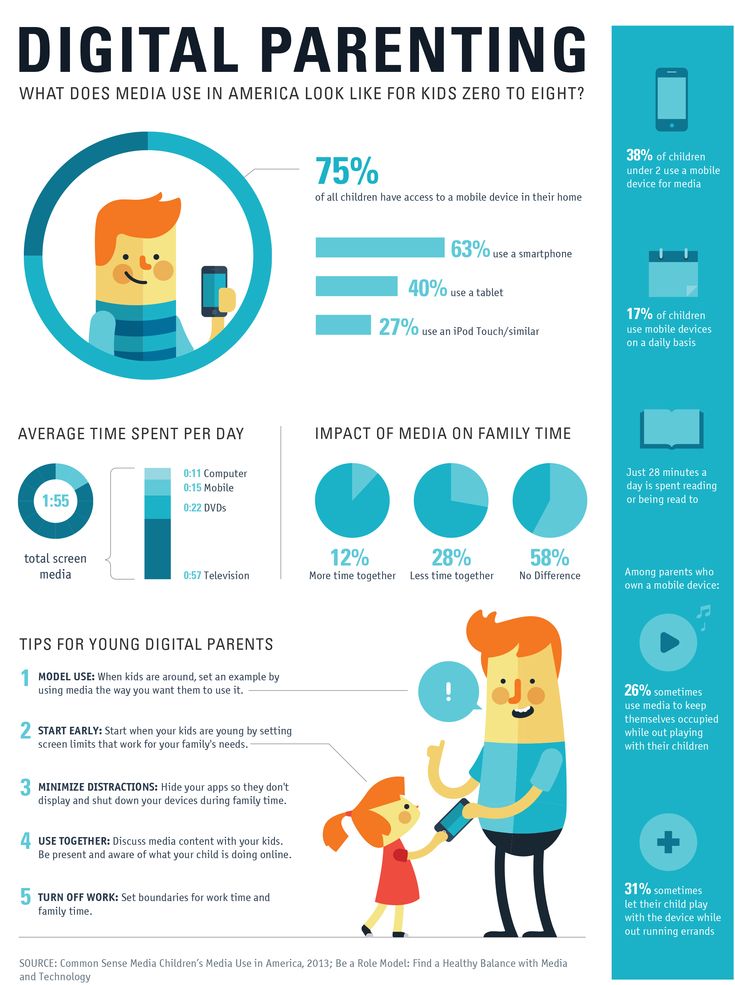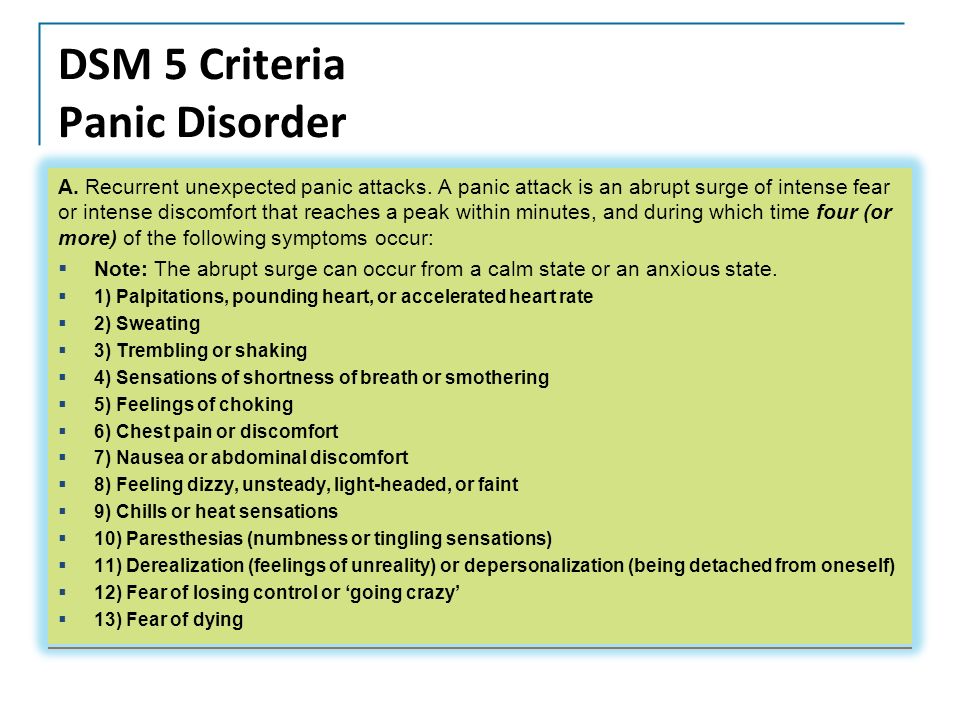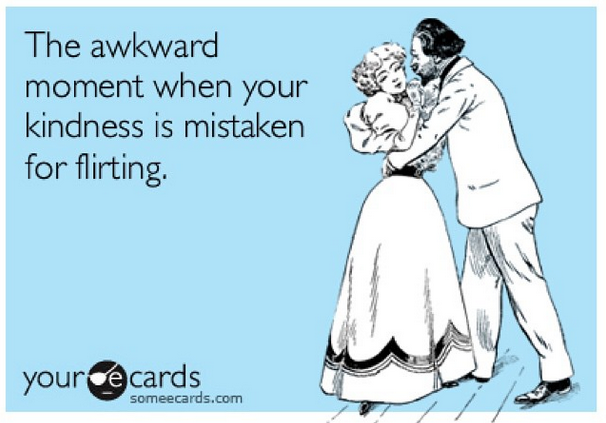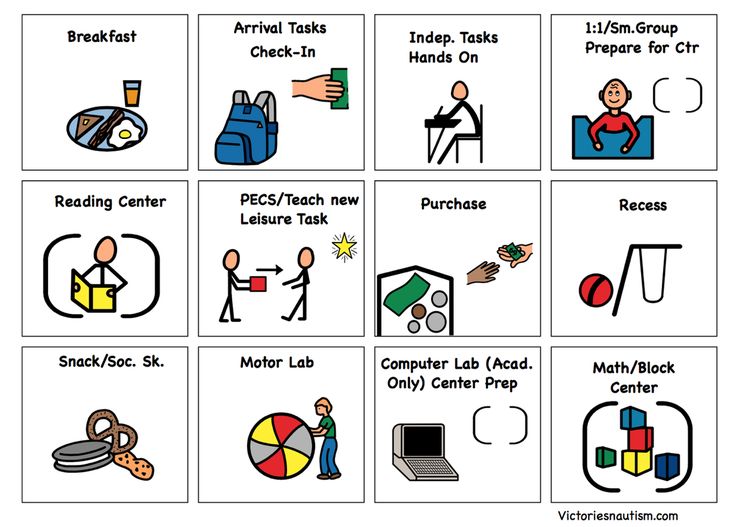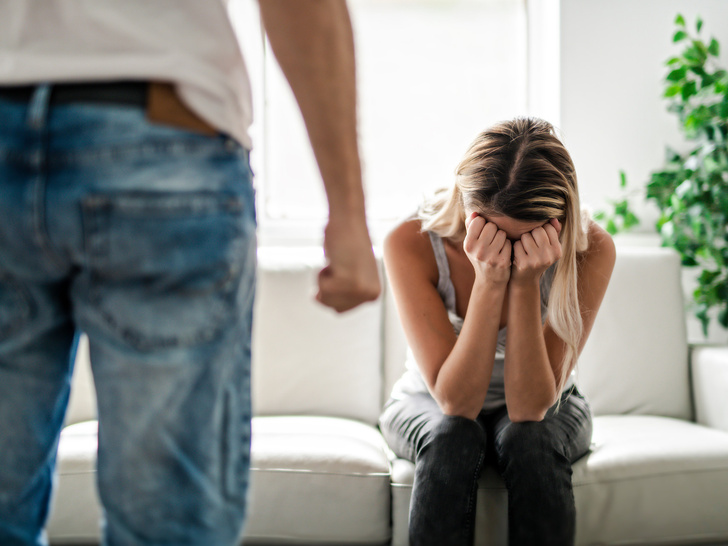Anxiety attacks quiz
Quiz: Are You Having An Anxiety Attack? Find Out Here
An anxiety attack isn’t always easy to identity. They can can come on quickly and without any real reason, making it hard to determine if you should seek help or wait it out.
Additionally, many people use the terms “anxiety attack” and “panic attack” interchangeably, which can also be confusing.
The next time you think you might be having an anxiety attack, take our quiz to find out what your symptoms mean. Then read on to learn how to treat them naturally.
What is an Anxiety Attack?An anxiety attack can be characterized by sudden waves of emotion that cause intense worry.
Often, thoughts about imminent events like illness and death or uncertain outcomes like the possibility of being late for a job interview can trigger these attacks. Mood disorders such as depression can also trigger it.
During an anxiety attack, you may find it hard to function normally or concentrate until these immense feelings pass.
According to the Cleveland Clinic, an anxiety attack is not listed in medical terminology, but that doesn’t mean your symptoms aren’t real.
Instead, you may be having a panic attack, which is likely due to an underlying anxiety disorder.
Here are some common signs of anxiety attacks:
- Chest pain or tightness
- Increased heart rate and breathing
- Shaking or trembling
- Sudden and severe thoughts of doom, panic, or death
- Feeling like you might be choking
- Chills or becoming too hot
- Nausea or vomiting
- Gastrointestinal symptoms, such as the quick onset of diarrhea or urge to use bathroom
- Dizziness
- Unable to concentrate
- Feeling like you’re going crazy or that what’s going on around you isn’t real
If you think you may have an anxiety disorder, then getting an early diagnosis from a mental health expert is important.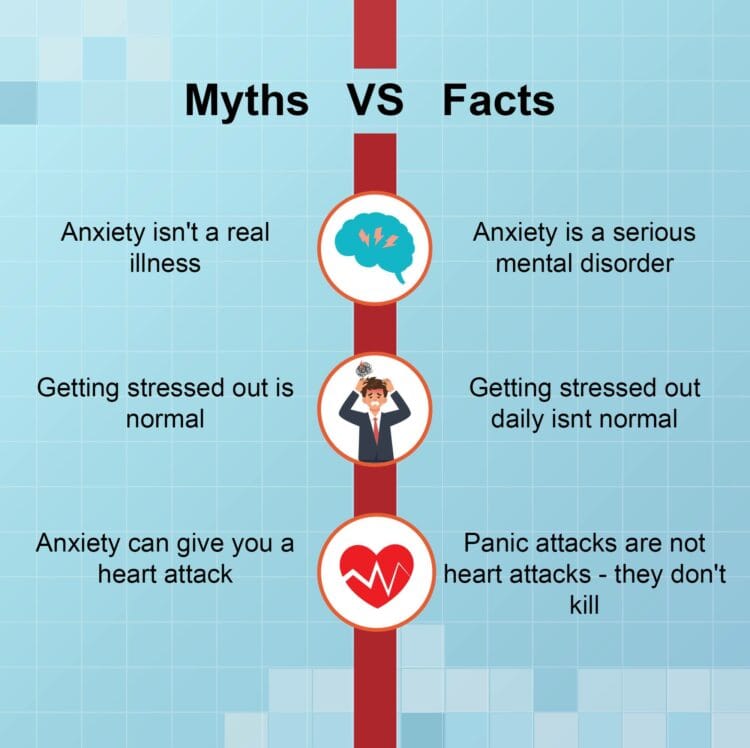 This can help you manage the occurrence of an anxiety attack effectively.
This can help you manage the occurrence of an anxiety attack effectively.
Alternatively, you could also seek the advice of a Traditional Chinese Medicine (TCM) physician. He or she may offer a distinct perspective in helping you determine if it is anxiety or a panic attack.
In addition, a TCM practitioner will also provide you with suitable therapies for keeping the symptoms of either condition at bay.
Let’s find out if your answers describe an anxiety attack or a panic attack.
If you answered mostly “A”You may be prone to anxiety attacks. But don’t worry, because adopting the right management habits can help allay the symptoms of this disorder.
From a TCM standpoint, practitioners believe that anxiety disorders are typically caused by our emotions.
Fatigue, dietary consumption, or a weak body constitution, among other factors may also cause it.
According to Eu Yan Sang TCM physician Ignatius Ooi Yong Chin, “Excessive mood swings, which include feelings of happiness, anger, worry, thought, sorrow, fear, or shock, a weak constitution, susceptibility to chronic illnesses, fatigue, irregular lifestyle habits like staying up late at night, or an unhealthy diet that consists of frequent consumption of fried, pungent, and spicy food will cause the loss of qi, blood, yin, yang, and energy, and lead to anxiety.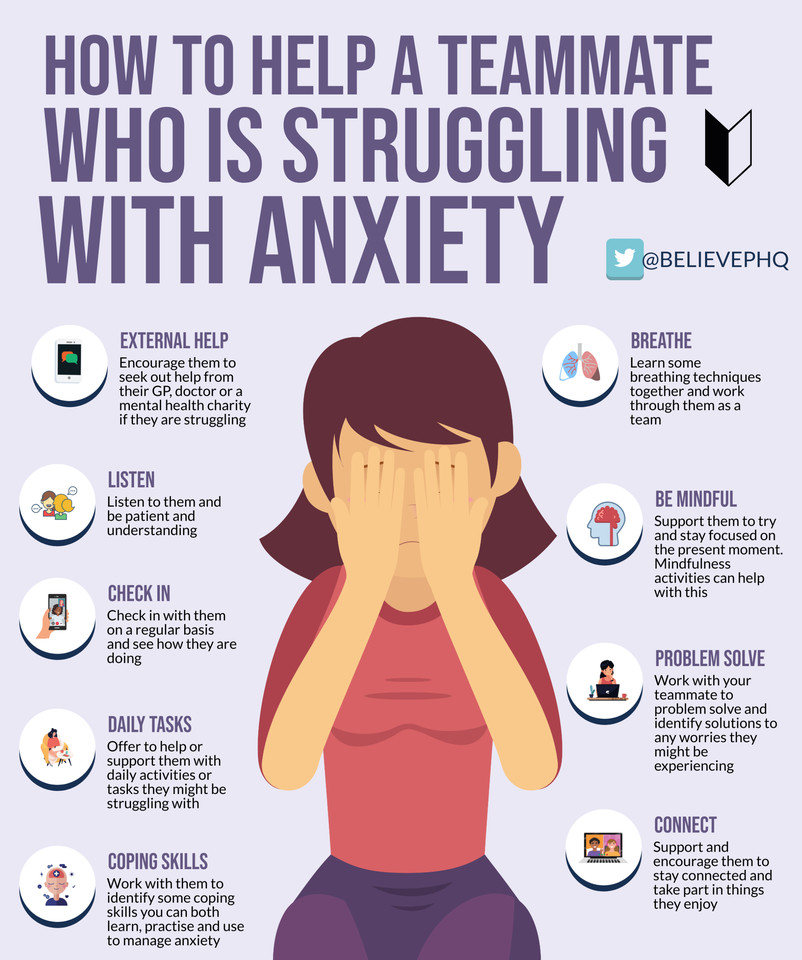 ”
”
For this reason, physician Ooi suggests the consumption of a herbal brew known as rose tea.
Prepared with ingredients such as rosebuds, tangerine peel, and honey, this beverage can warm and nourish the heart, liver, and blood vessels, relieving liver qi stagnation in the body, inducing calm, and preventing depression.
Similarly, physician Ooi also believes that massaging the Foot-Jueyin acupoints of the liver meridian can help to suppress nervousness and anxiety by soothing the liver and regulating qi.
If you answered mostly “B”
You may not be suffering from anxiety, but you’re likely to be at risk of panic attacks.
Some attacks may come from environmental stimuli and cause hyperventilation. People will mistake for lack of oxygen and start to breathe more rapidly.
Physician Ooi says the best way to do away with panic attack symptoms is to inhale deeply and exhale slowly.
Apart from deep breathing, also try applying pressure to certain acupoints to manage different symptoms.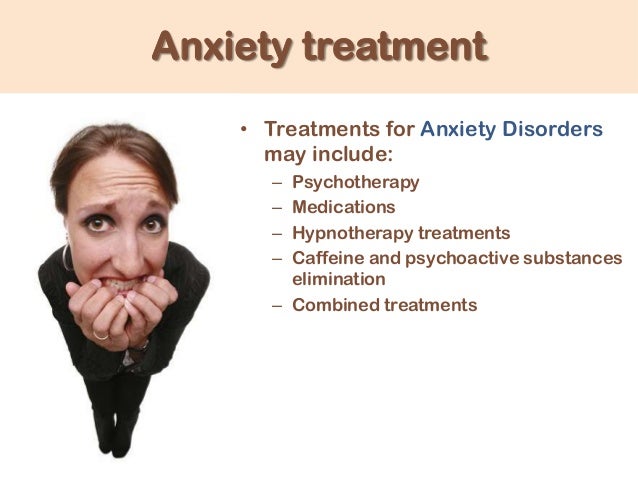 Neiguan (PC-6) — located two inches from the horizontal lines of both wrists — can be stimulated to relieve chest tightness and slow heart palpitations. A firm press on Shenmen (HT-7) — located on the crease of your inner wrist — can soothe the nerves and regulate your heartbeat.
Neiguan (PC-6) — located two inches from the horizontal lines of both wrists — can be stimulated to relieve chest tightness and slow heart palpitations. A firm press on Shenmen (HT-7) — located on the crease of your inner wrist — can soothe the nerves and regulate your heartbeat.
An anxiety attack (or a panic attack, for that matter) can affect you physically and mentally. It can also impair your overall quality of life.
In addition to the strategies mentioned above, you can prevent an anxiety attack by adding calming supplements to your diet.
Lingzhi Capsules contain the stalk and mushroom cap of the entire Lingzhi plant, which helps calm the mind and promote relaxation.
Here are some other tips for managing anxiety naturally:
- Exercise regularly to control stress and reduce cortisol levels
- Practice journaling or write down your tasks to prevent feeling overwhelmed
- Speak with a therapist or trusted friend that you can share your feelings with
- Eat a healthy diet and avoid highly processed inflammatory foods
- Stay hydrated by drinking plenty of water throughout the day
On a brighter note, you can take comfort in knowing that the sooner you tackle anxiety or panic attacks head-on, the better the curative effect of therapy.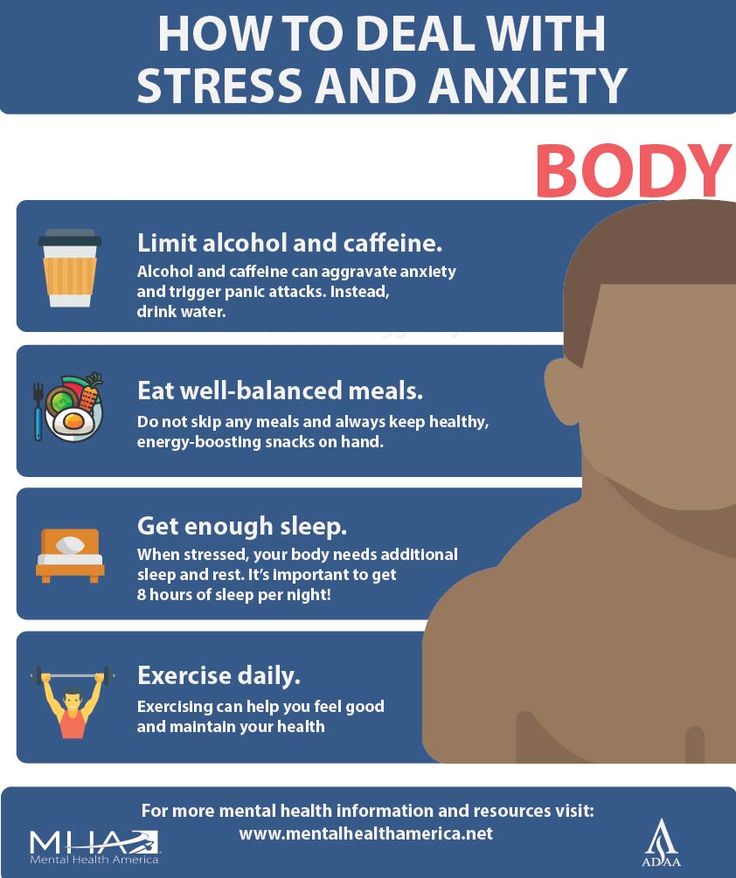
Share this quiz with people presenting the symptoms of either condition if you found it helpful, and check out our article on how to prevent an anxiety attack here.
Panic Disorder Test & Screening. Get Instant Results.
Anxiety DisordersPanic Attacks & Panic Disorder
Take this short quiz to determine if you may have panic disorder—an anxiety disorder characterized by recurring unexpected panic attacks.
Medical ReviewerCaroline Buzanko, PhD
Who Is This Panic Disorder Quiz For?
Below is a list of questions that relate to life experiences common among people diagnosed with panic disorder—a type of anxiety disorder characterized by recurring unexpected panic attacks. Please read each question carefully and indicate whether you have experienced these thoughts or symptoms in the past year. Keep in mind that the effects of certain drugs or medications, as well as certain medical conditions, can cause panic attacks, so you should discuss your symptoms with a doctor.
Note that panic disorder refers to recurrent, unexpected panic attacks—that is, the attack appears to happen out of the blue when there is no actual danger. In contrast, expected panic attacks occur when there is an obvious cue or trigger, such as a specific phobia (like a fear of snakes). While panic attacks are very uncomfortable, they can be treated. Experts say that it is important to find out whether you have panic disorder so that you can receive the right treatment.
How Accurate Is It?
This quiz is NOT a diagnostic tool. Mental health disorders can only be diagnosed by a licensed mental health professional or doctor.
What Is a Panic Attack and How Is It Treated?
Panic is an intense sensation of fear or anxiety in response to an actual danger or acute stress. Panic inhibits our ability to reason clearly or logically. Panic and panic attacks can be treated—both psychotherapy and medication have been found to be effective in helping to reduce the frequency and intensity of panic attacks.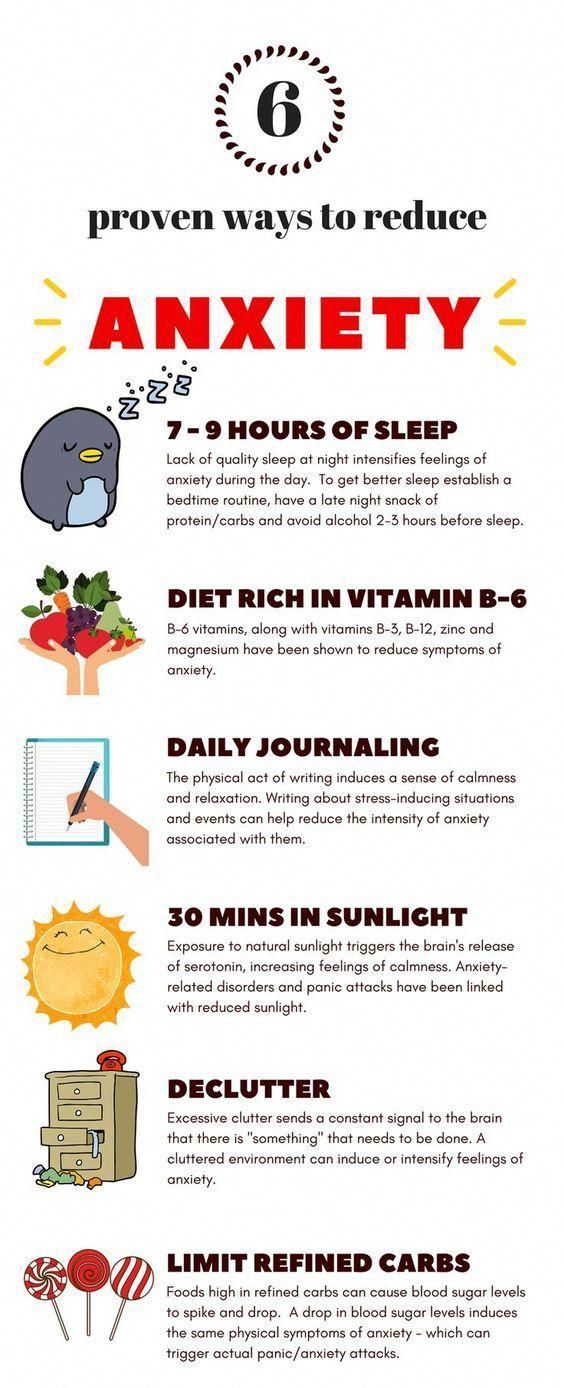 Your specific treatment path will depend on personal preference, medical history, and the severity of your attacks.
Your specific treatment path will depend on personal preference, medical history, and the severity of your attacks.
Panic attacks typically occur without warning and can be accompanied by symptoms like chest pain, dizziness, trembling, sweating and shortness of breath. It can be frightening to experience, either firsthand or as a witness. But knowing the warning signs or triggers of an attack—if any—and remembering to breathe deeply or count backwards during the episode can help, in addition to other treatments like therapy and medication.
Psycom believes assessments can be a valuable first step toward getting treatment. All too often people stop short of seeking help out of fear their concerns aren't legitimate or severe enough to warrant professional intervention.
Your privacy is important to us. All results are completely anonymous.
Panic Disorder Quiz
Alchemer is an easy to use professional survey , and data analysis tool. Please take my survey now
Panic Disorder FAQs
How is panic disorder diagnosed?
Panic disorder is diagnosed by a health care professional, says Philip R.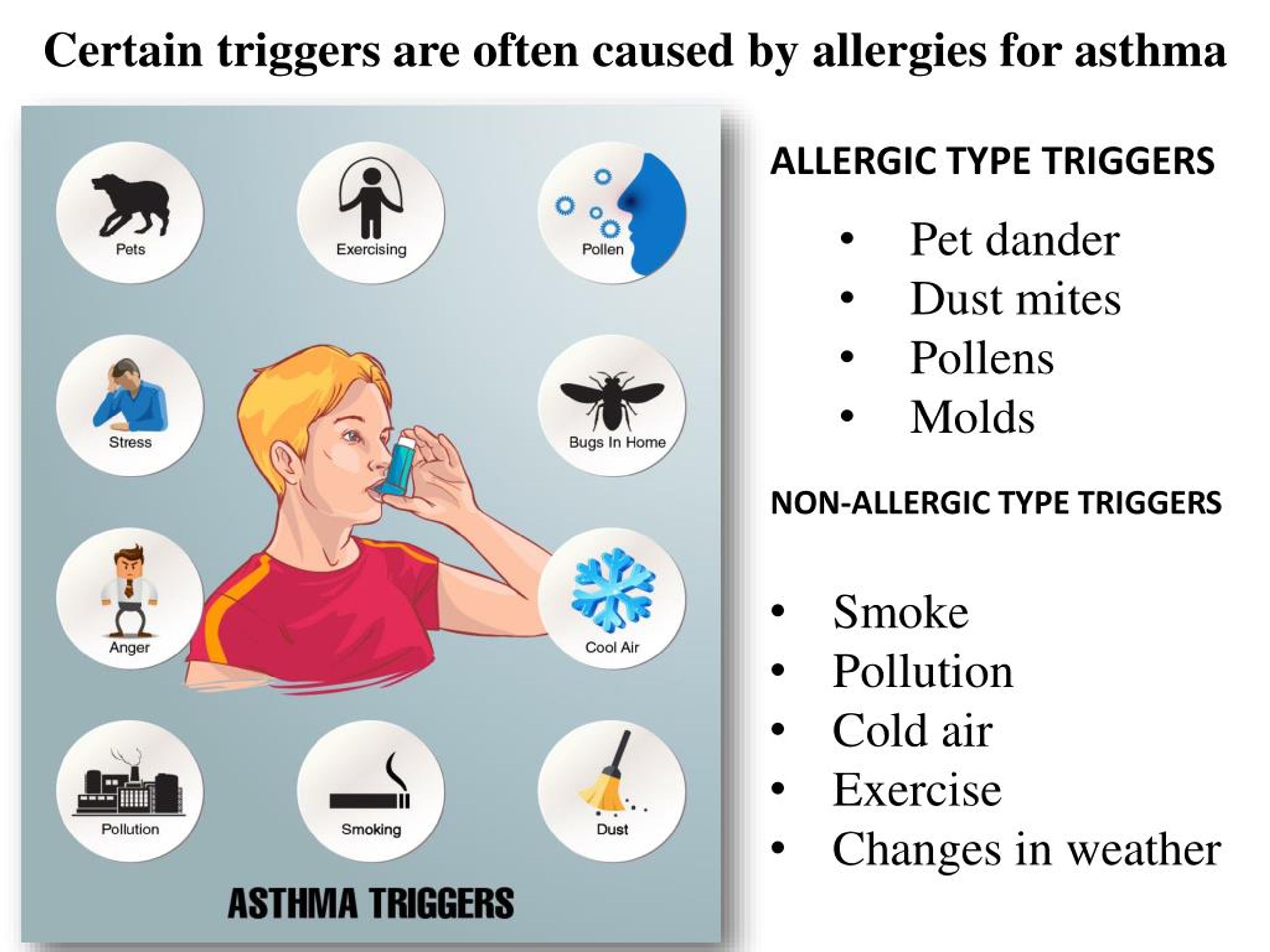 Muskin, MD, professor of psychiatry at Columbia University Irving Medical Center in New York City. The provider will ask the person to describe their symptoms, which can include sweaty palms, dizziness, a cold sweat, and numbness around the lips. “The person fears losing control and fears going crazy,” Dr. Muskin says.
Muskin, MD, professor of psychiatry at Columbia University Irving Medical Center in New York City. The provider will ask the person to describe their symptoms, which can include sweaty palms, dizziness, a cold sweat, and numbness around the lips. “The person fears losing control and fears going crazy,” Dr. Muskin says.
To receive a diagnosis of panic disorder, you must also have anticipatory anxiety, Dr. Muskin says. “You may have one panic attack and then be afraid to leave the house because you are so afraid of having another,” he says.
How many panic attacks are needed for a panic attack disorder diagnosis?
According to the American Psychiatric Association’s Diagnostic and Statistical Manual of Mental Disorders, Fifth Edition (DSM-5), a person must have one or more attacks followed by at least a month of fearing another panic attack. “So technically, at least two panic attacks are needed for the panic disorder diagnosis, but typically people with panic disorder report experiencing many more,” says Simon A.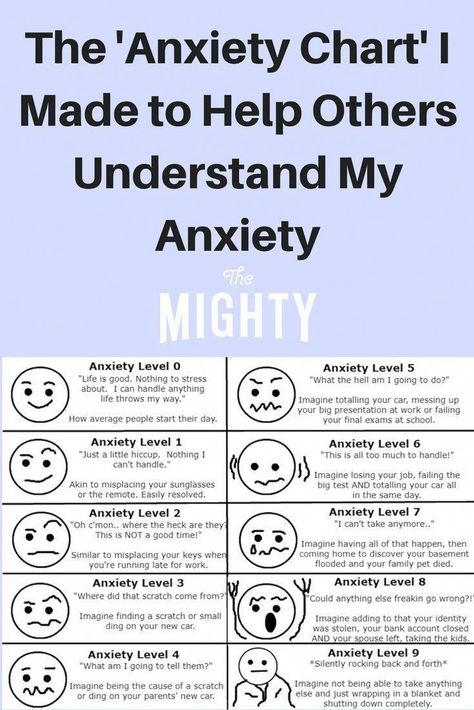 Rego, PsyD, chief psychologist at Montefiore Health System in New York City.
Rego, PsyD, chief psychologist at Montefiore Health System in New York City.
Every year, nearly 11% of Americans experience a panic attack, and between 2% and 3% of them go on to develop panic disorder.
Are phobias sometimes diagnosed along with panic disorder?
Yes, panic disorder can be diagnosed along with other specific phobias, says Simon A. Rego, PsyD, chief psychologist at Montefiore Health System in New York City. These might include injury phobia, where the person has an intense fear of injury,2 or an animal phobia, where the person is afraid of animals.3
Panic disorder also can be diagnosed along with social phobia (the fear of being watched and judged by others) and agoraphobia (the fear of being in spaces from which you cannot escape). These all are seen as distinct disorders from panic disorder, Rego says.
How many people in the US are diagnosed with a panic disorder?
Panic disorder impacts about 2.7% of the people in the US, says Simon A.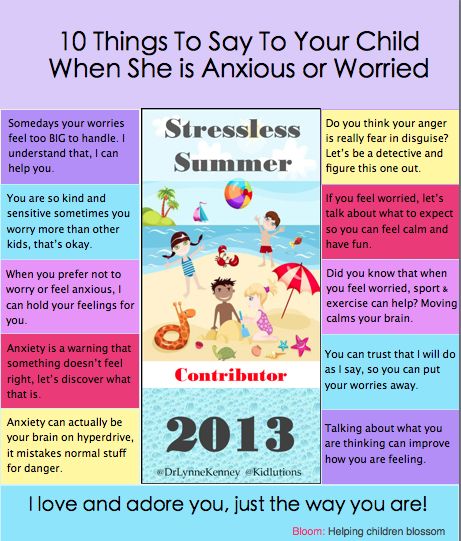 Rego, PsyD, chief psychologist at Montefiore Health System in New York City. Women are twice as likely to be diagnosed with the disorder as men.
Rego, PsyD, chief psychologist at Montefiore Health System in New York City. Women are twice as likely to be diagnosed with the disorder as men.
What does it mean to be diagnosed with panic disorder?
Some people find that a diagnosis comes as a relief. They may have thought they had a medical condition such as a problem with their heart or lungs, and that their life was at risk, says Simon A. Rego, PsyD, chief psychologist at Montefiore Health System in New York City. Other patients have a hard time believing the diagnosis since their symptoms are real and yet they are being told they have a psychiatric disorder.
“The diagnosis can be mistakenly taken to mean that it is all in their head,” Rego says. “The truth is that while the person’s symptoms are real, the fears about them, such as that they are having a heart attack or going crazy, are often not accurate.”
At what age do people usually get diagnosed with panic disorder?
Panic disorder usually develops in people ages 18 to 35, says Simon A.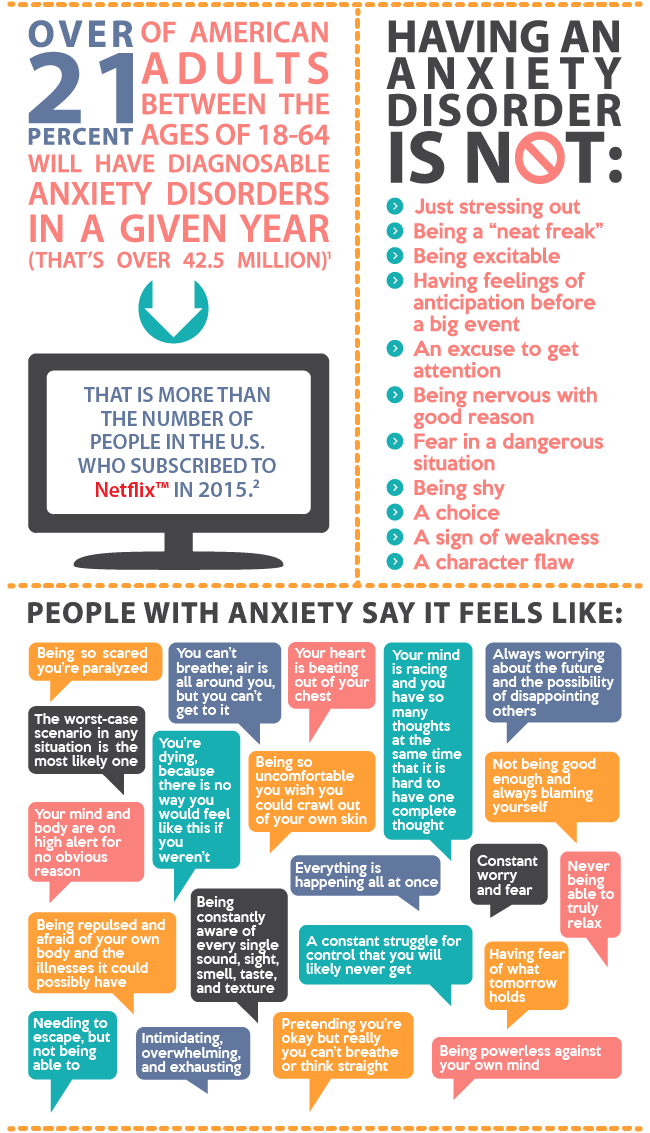 Rego, PsyD, chief psychologist at Montefiore Health System in New York City. It is most often diagnosed in the early 20s to mid 30s. In these cases, people often report that their panic attacks began in late adolescence or early adulthood.
Rego, PsyD, chief psychologist at Montefiore Health System in New York City. It is most often diagnosed in the early 20s to mid 30s. In these cases, people often report that their panic attacks began in late adolescence or early adulthood.
While children also can have panic disorder, it is much less common. Panic disorder can develop in late adulthood, Rego says, but this, too, is less common.
What are the warning signs of a panic attack?
A panic attack can feel “like a hand is sliding around your throat,” says Philip R. Muskin, MD, professor of psychiatry at Columbia University Irving Medical Center in New York City. “Your heart pounds, you can feel sweaty and shaky, and you can feel a sense of dread and doom,” he explains. Other symptoms can include chills, trembling, breathing problems, weakness or dizziness, tingly or numb hands, chest pain, stomach pain, and nausea.
Can panic disorder be cured?
Although there is no cure for panic disorder, most people get better when they get “the right psychotherapy, which is cognitive behavioral therapy; the right medication; or a combination of the two,” says Simon A. Rego, PsyD, chief psychologist at Montefiore Health System in New York City.
Rego, PsyD, chief psychologist at Montefiore Health System in New York City.
Can you self-diagnose panic disorder?
There’s no shortage of tools on the Internet to help diagnose panic attacks. “But it is best to leave the diagnosis up to a qualified mental health professional,” says Simon A. Rego, PsyD, chief psychologist at Montefiore Health System in New York City.
What happens if a panic disorder goes untreated?
Research suggests that an untreated panic disorder can lead to even more panic attacks, says Simon A. Rego, PsyD, chief psychologist at Montefiore Health System in New York City. “And if a panic disorder is left untreated, women will fare worse than men,” he says.
How are panic attacks and agoraphobia related?
Agoraphobia is fear or anxiety of being in a situation where you feel you cannot escape or that help might not be available if you need it, says Simon A. Rego, PsyD, chief psychologist at Montefiore Health System in New York City. “When people with panic disorder worry about experiencing another panic attack and not being able to escape or get help, it can lead to agoraphobia,” he says.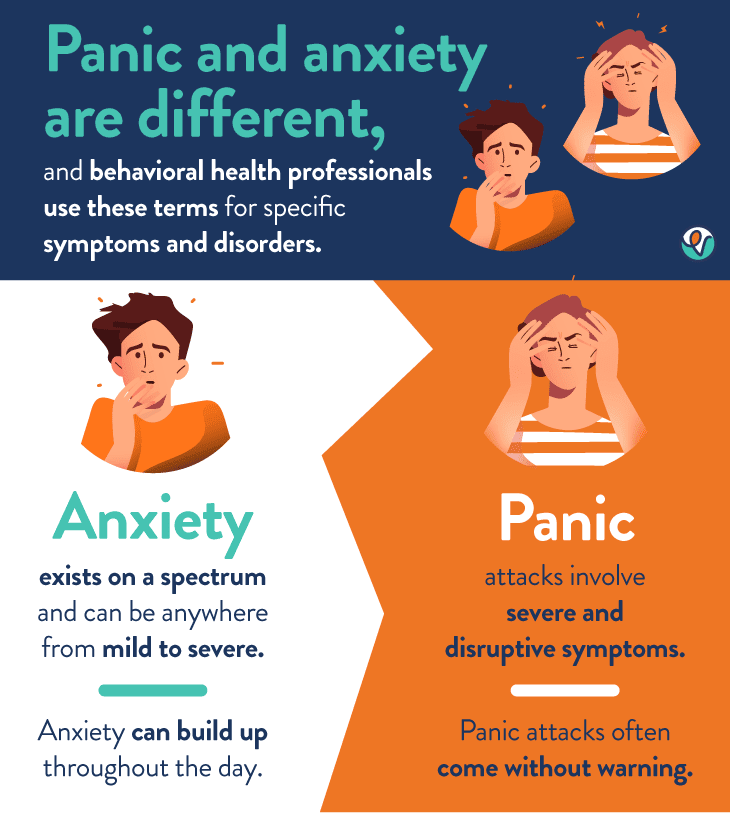 “Most but not all people with panic disorder have agoraphobia.”
“Most but not all people with panic disorder have agoraphobia.”
Why is panic disorder diagnosed less often in men?
It's not entirely clear what accounts for the gender difference. One factor may be that men are less willing to talk about anything that may be perceived as weakness, says Philip R. Muskin, MD, professor of psychiatry at Columbia University Irving Medical Center in New York City. So they tend to downplay their symptoms. Some studies support the idea that hormonal differences (i.e. the influence of gender-related hormones on respiration) between women and men might also play a role, says Simon A. Rego, PsyD, chief psychologist at Montefiore Health System in New York City. Another possible reason, according to Rego, is the physiological differences between the genders.
- Cleveland Clinic. Panic Disorder. Page Last Reviewed August 2020. Accessed June 10, 2021.
- Ritz, Thomas et al. The psychophysiology of blood-injection-injury phobia: Looking beyond the diphasic response paradigm.
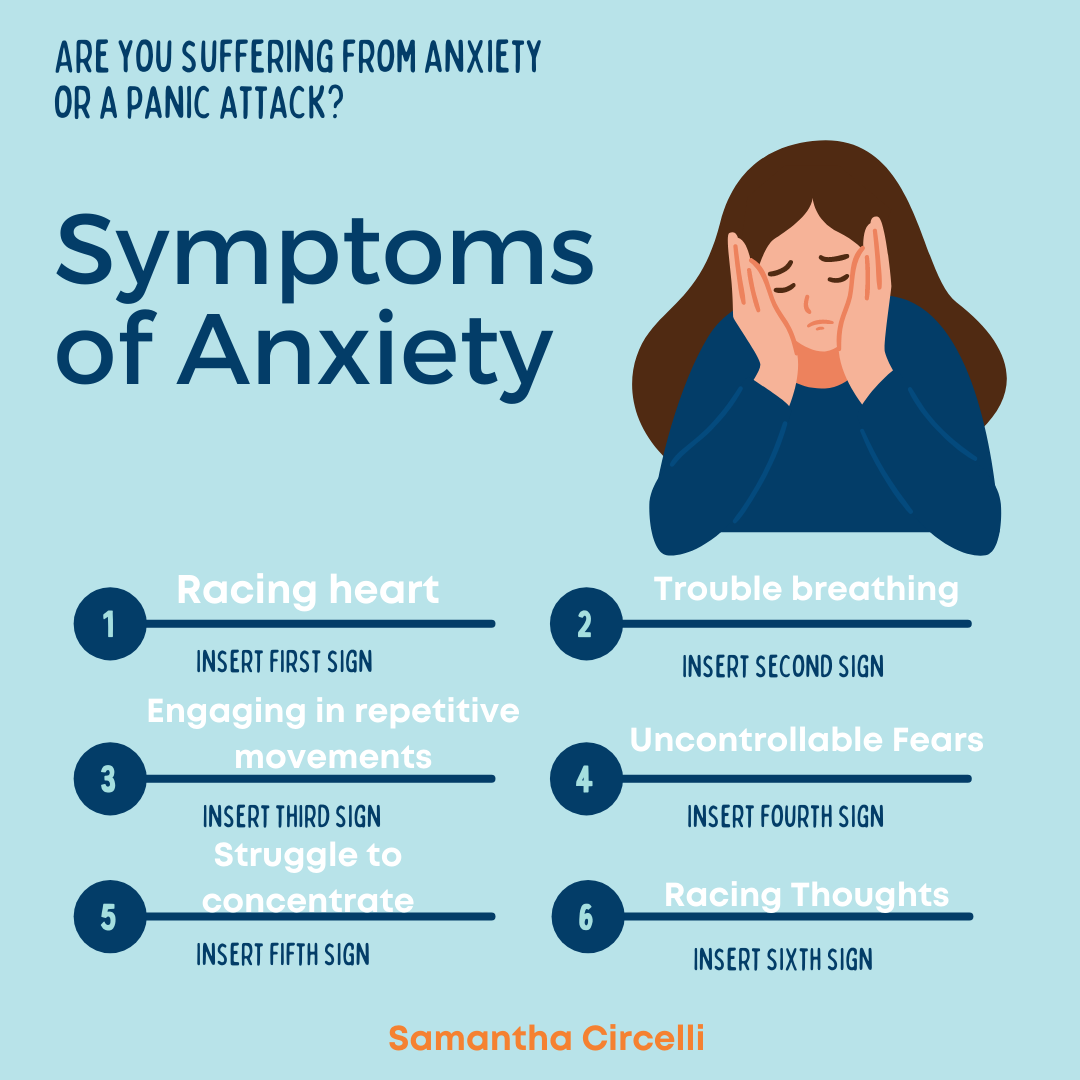 October 2010. International Journal of Psychophysiology. Accessed June 10, 2021.
October 2010. International Journal of Psychophysiology. Accessed June 10, 2021. - American Psychological Association. APA Dictionary of Psychology: Animal Phobia. Accessed June 10, 2021.
Notes: This article was originally published July 8, 2021 and most recently updated December 9, 2021.
Caroline Buzanko, PhD
Caroline Buzanko, PhD, is a licensed psychologist, mother of two, international speaker, ADHD superhero, and changer of lives. She works with kids, teens, and their families to help them thrive in life by maximizing confidence, forging their resilience, and fostering strong connections.
Panic Attack Test • Psychologist Yaroslav Isaikin
(translated by me)
This questionnaire defines a panic attack as a sudden attack of fear or discomfort lasting from 10 to 60 minutes (rarely a couple of hours), accompanied by 4 or more symptoms listed below.
If symptoms are less than 4 then this is defined as limited attack.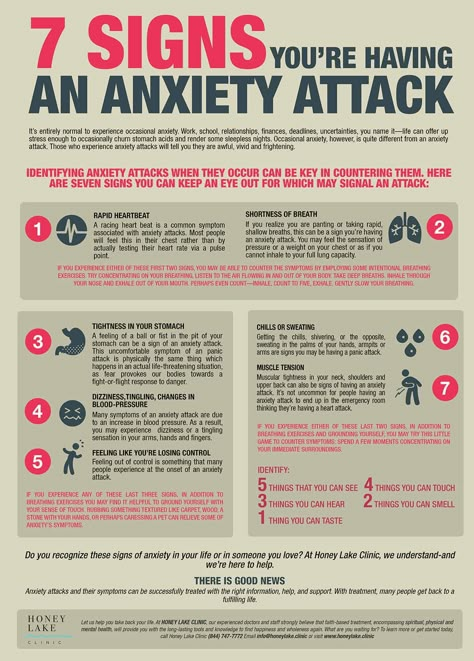
Symptoms:
- Rapid or pounding heartbeat
- Sweating
- Nausea
- Chest pain or discomfort
- Dizziness
- Fear of going crazy or losing control
- Shortness of breath
- Numbness or tingling
- Feeling of suffocation
- Fear of death
- Chill or redness
- Feeling unreality of what is happening
Panic Disorder Test Results Chart:
| Norm | Light degree | Moderate | Severe | Very severe | |
| Without agoraphobia | 0-1 | 2-5 | 6-9 | 10-13 | 14+ |
| Agoraphobic | 0-2 | 3-7 | 8-10 | 11-16 | 16+ |
Instructions:
Answer the following questions based on the last 7 days.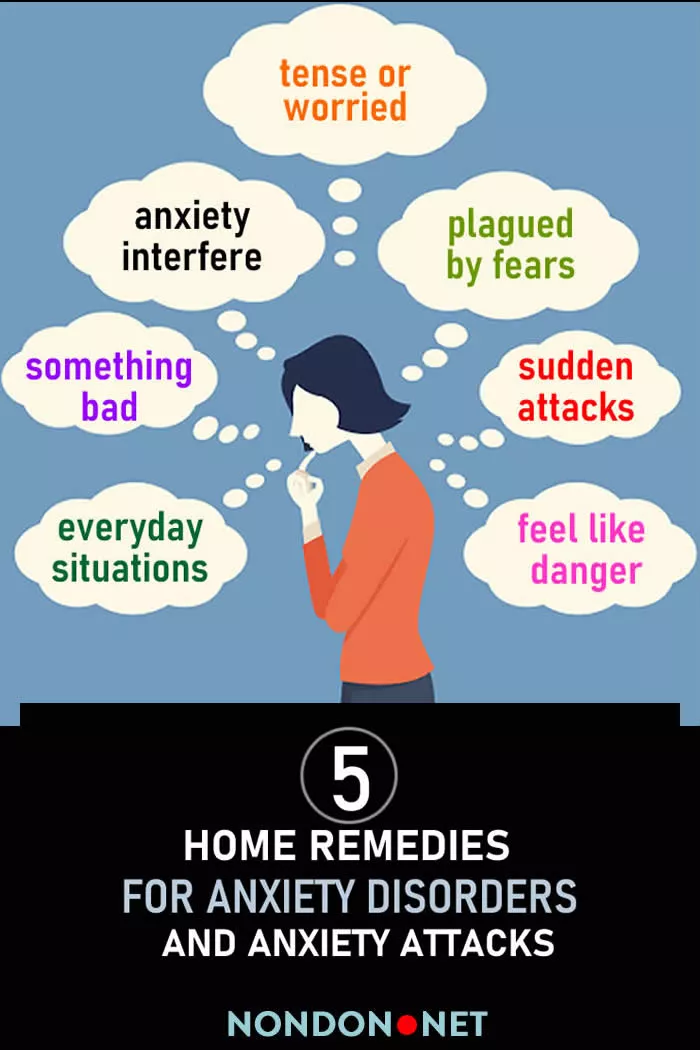
If there were no situations described in 4-7 questions last week or there were fewer than usual, then answer as if they were and if everything was as usual.
1. How many panic attacks and limited attacks did you have during the last week?
No panic attacks or limited attacks
No full-fledged panic attacks and no more than 1 limited attack per day
1 or 2 full-fledged panic attacks and/or a few limited attacks per day more than 1 per day
Panic attacks occurred more than 1 time per day. More days with panic than without it
2. If you had any panic attacks in the past week, on average, how unpleasant, uncomfortable, frightening were they when they occurred?
Panic attacks didn't bother me at all.
They did bother me a little. Manifested not very intensely
Moderately disturbed. Were intense, but manageable
Very disturbing. Manifested very intensely
Extremely disturbed. Great stress in all attacks
3.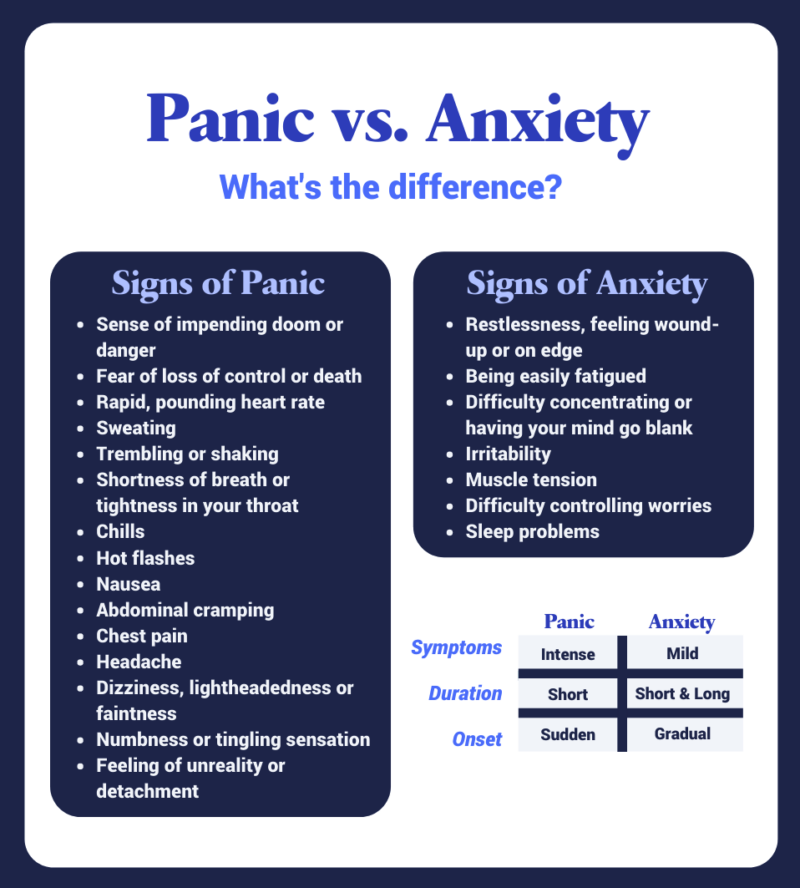 In the past week, how often have you worried or worried about when the next panic attack will occur or about fears associated with attacks? (for example, they may mean that you have physical or mental health problems or may create difficulties in society)
In the past week, how often have you worried or worried about when the next panic attack will occur or about fears associated with attacks? (for example, they may mean that you have physical or mental health problems or may create difficulties in society)
Not worried at all
Sometimes or slightly worried
Often or moderately worried
Very often and very worried
Almost constantly and this interfered with life very much
4. In the past week, were there any places or situations (eg public transport, crowded places, bridges, tunnels, confined spaces, loneliness...) that you avoided for fear of having a panic attack? If they weren't there, would you avoid them if you could?
No fear and avoidance
Some fear and/or avoidance, but I could usually get over it. It has very little effect on my lifestyle
Noticeable fear and/or avoidance, but still manageable. With some effort, I got through it. To some extent affected the way of life, but in general nothing is disturbed
Serious avoidance.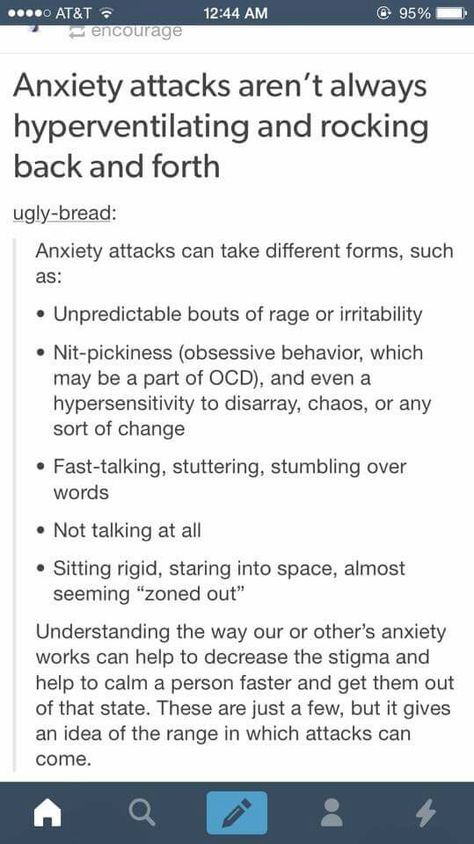 Significant lifestyle changes necessary for safety, making it difficult to carry out daily activities
Significant lifestyle changes necessary for safety, making it difficult to carry out daily activities
Widespread fear and/or avoidance. Comprehensive lifestyle changes and inability to do important things
5. During the past week, were there any activities (eg exercise, shower, bath, coffee, emotional movies, sex) that you avoided or feared because they caused panic attacks? If they weren't there, would you avoid them if you could?
No fear and avoidance
Some fear and/or avoidance, but I could usually get over it. It has very little effect on my lifestyle
Noticeable fear and/or avoidance, but still manageable. With some effort, I got through it. To some extent affected the way of life, but in general, nothing is broken
Severe avoidance. Significant lifestyle changes necessary for safety, making it difficult to carry out daily activities
Widespread fear and/or avoidance. Comprehensive lifestyle change and inability to perform important tasks
6.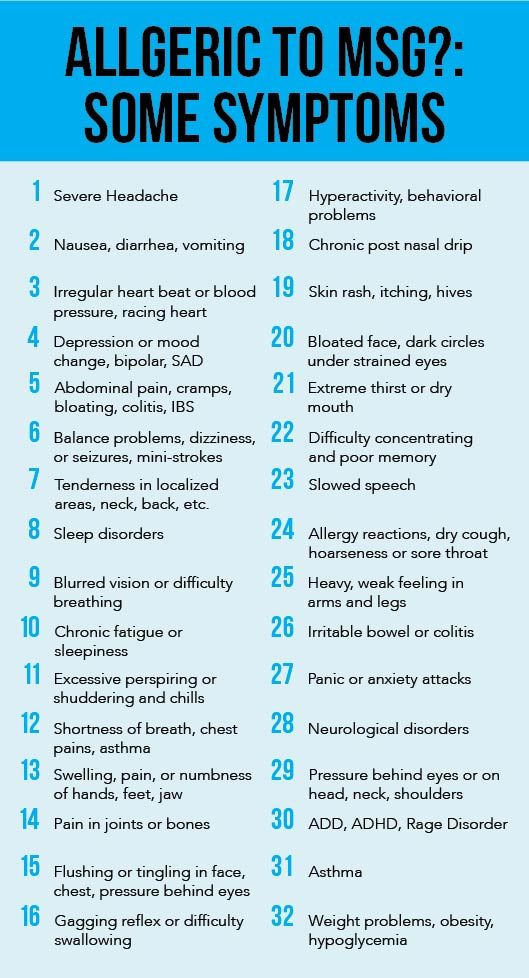 In the past week, how much did all of the above symptoms (panic and limited attacks, worry about future attacks, fear of situations or activities) interfere with your ability to work or fulfill your obligations?
In the past week, how much did all of the above symptoms (panic and limited attacks, worry about future attacks, fear of situations or activities) interfere with your ability to work or fulfill your obligations?
Does not affect social life in any way
A little influence, but more would be possible without these problems
Significantly influences, but still something is obtained
Significantly disrupts working capacity and many things did not work out
Completely disrupts working capacity and almost there is nothing to be done
7. In the past week, how much did all of the above symptoms (panic and limited attacks, worry about future attacks, fear of situations or activities) interfere with your social life? If there was no opportunity to communicate with someone, how would it interfere, if there were opportunities?
Does not affect social life in any way
A little influence, but would have done more without these problems life and almost nothing to do
CBT - Panic Attack Checklist
Panic Attack Checklist
Manual
READ CAREFULLY
Read each statement and decide if you agree or disagree by clicking on "Yes" or "No".
Read all statements carefully and answer them.
Treat the work seriously and carefully, as carelessness and the desire to distort the result leads to the unreliability of the study
After completing the questionnaire, click on the button Process .
Test
(if yes, continue answering questions)
